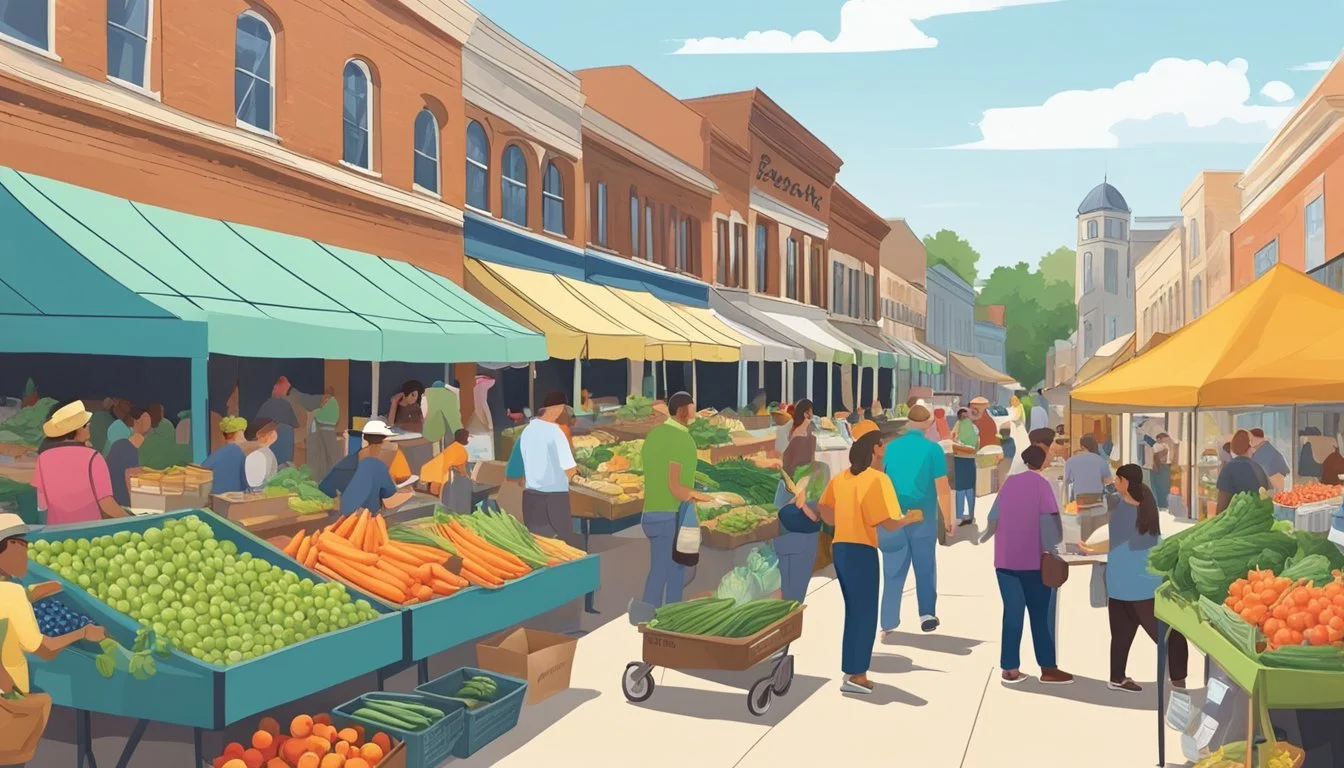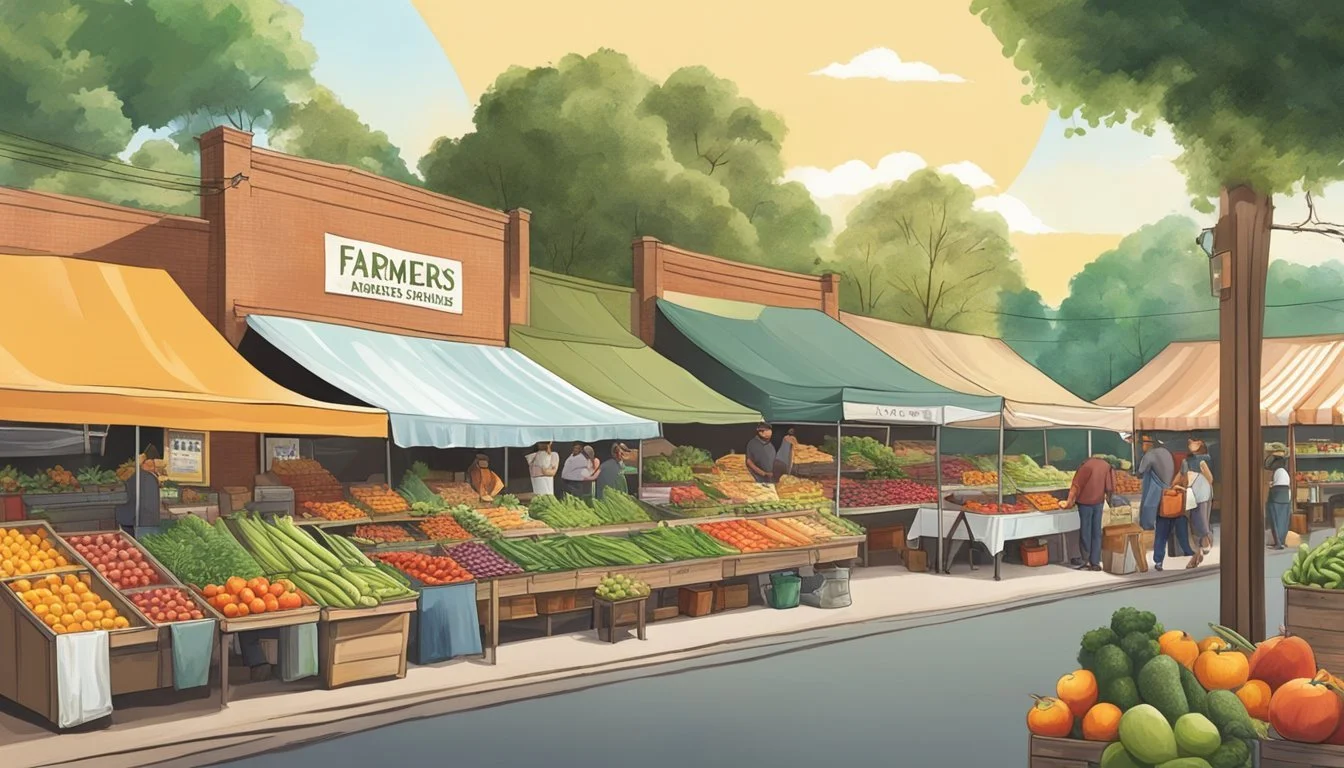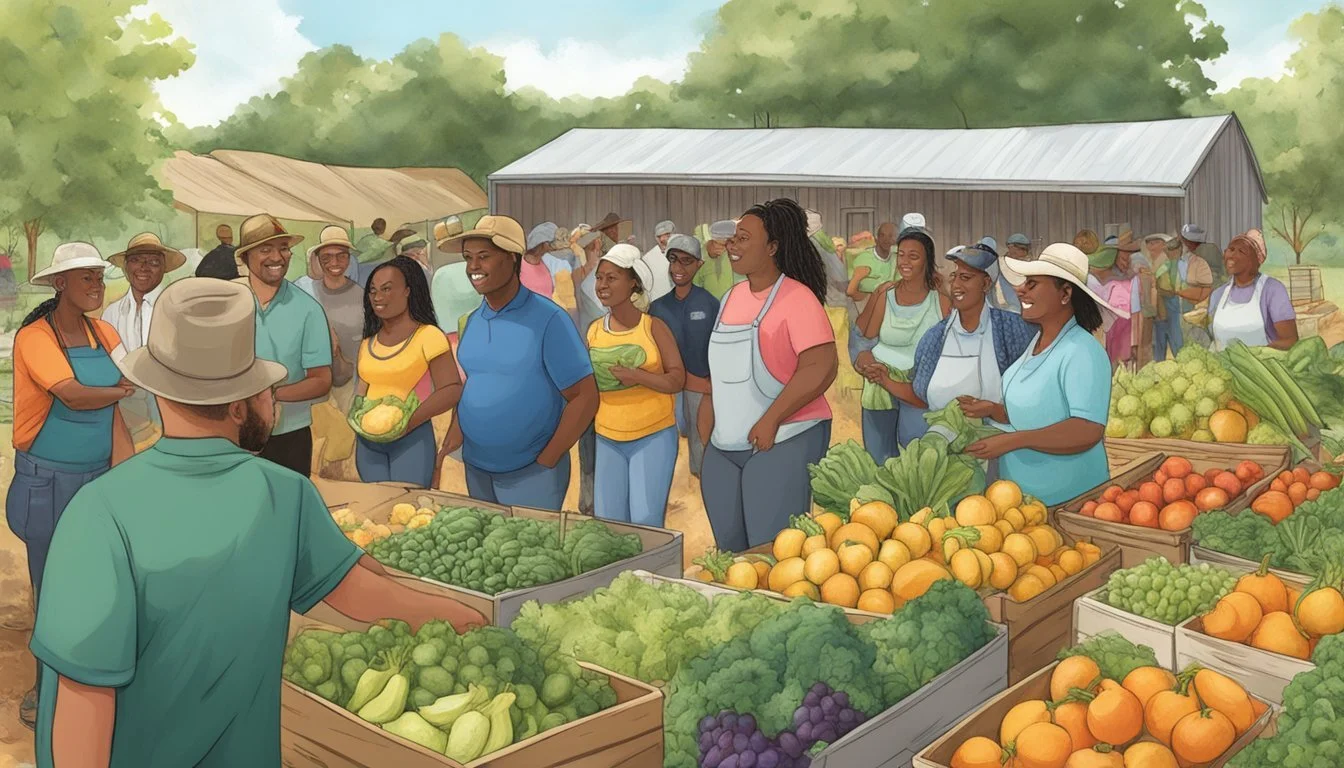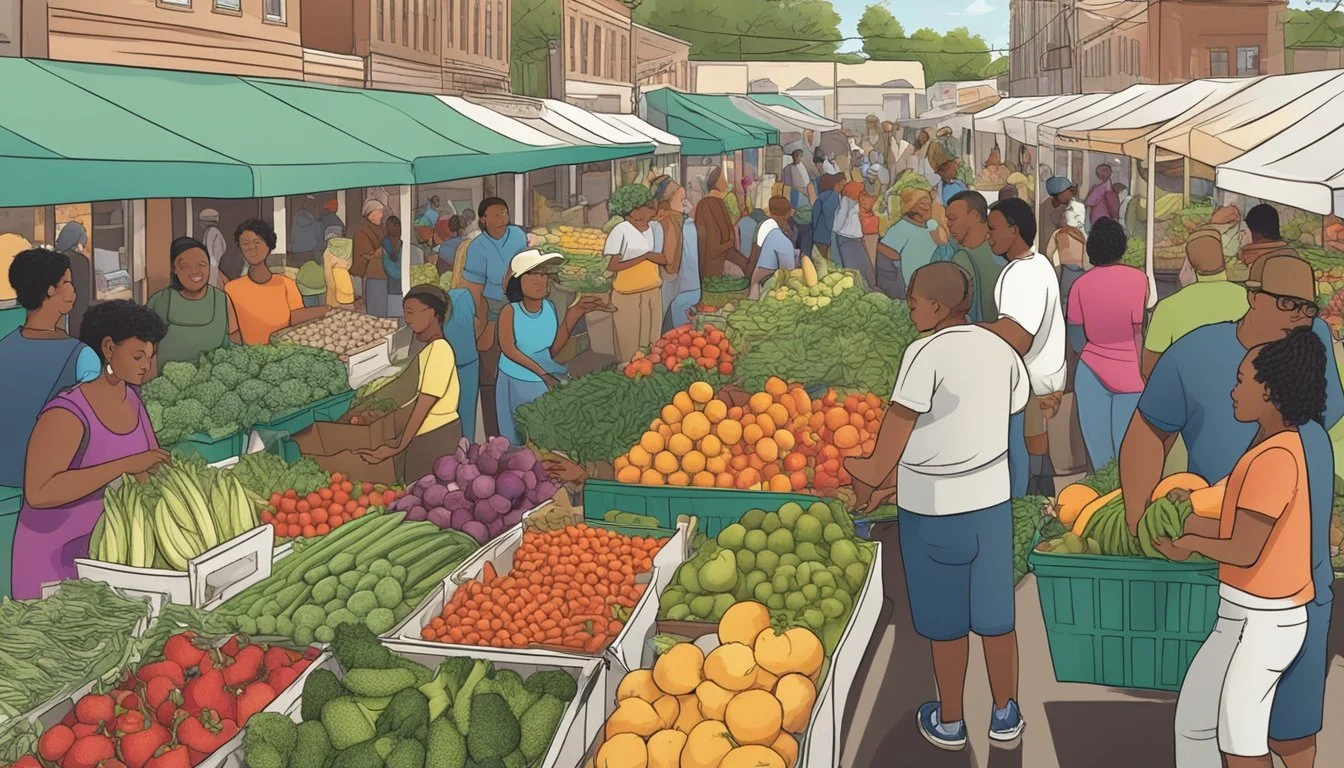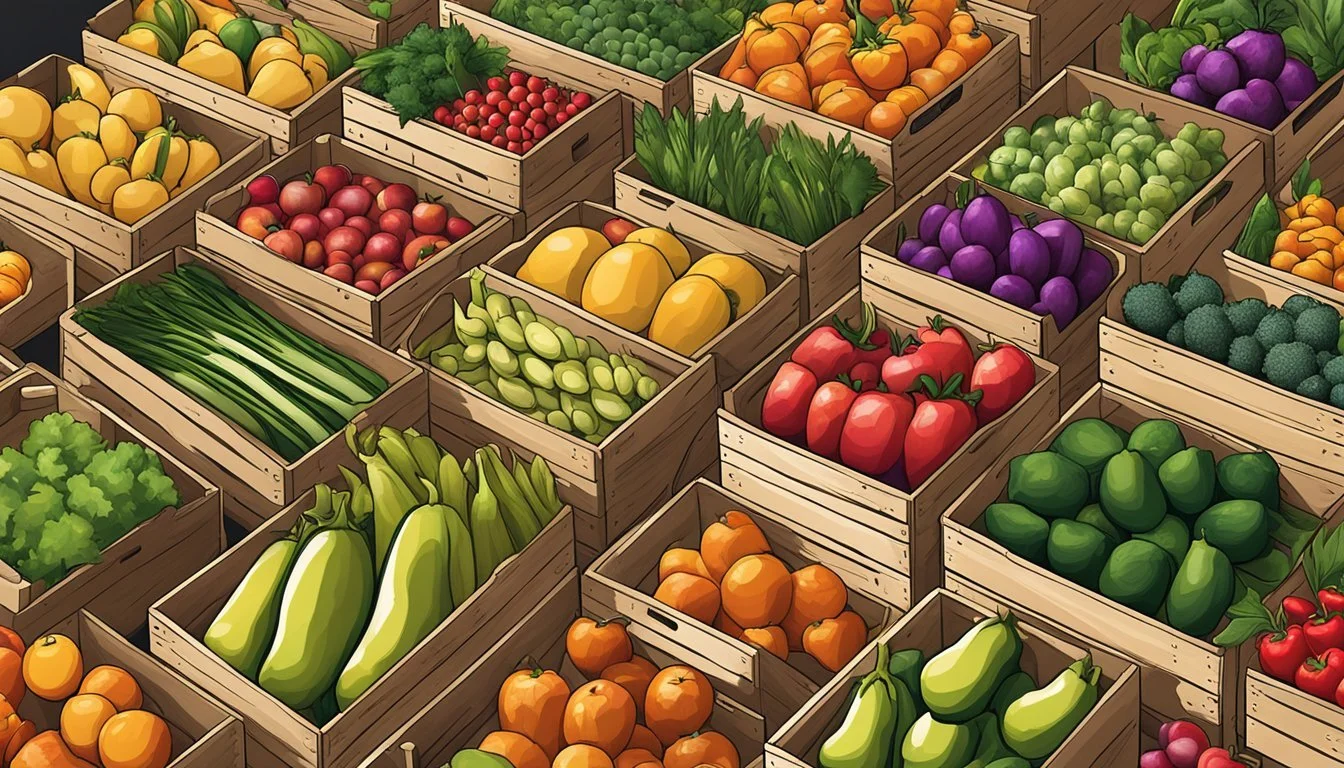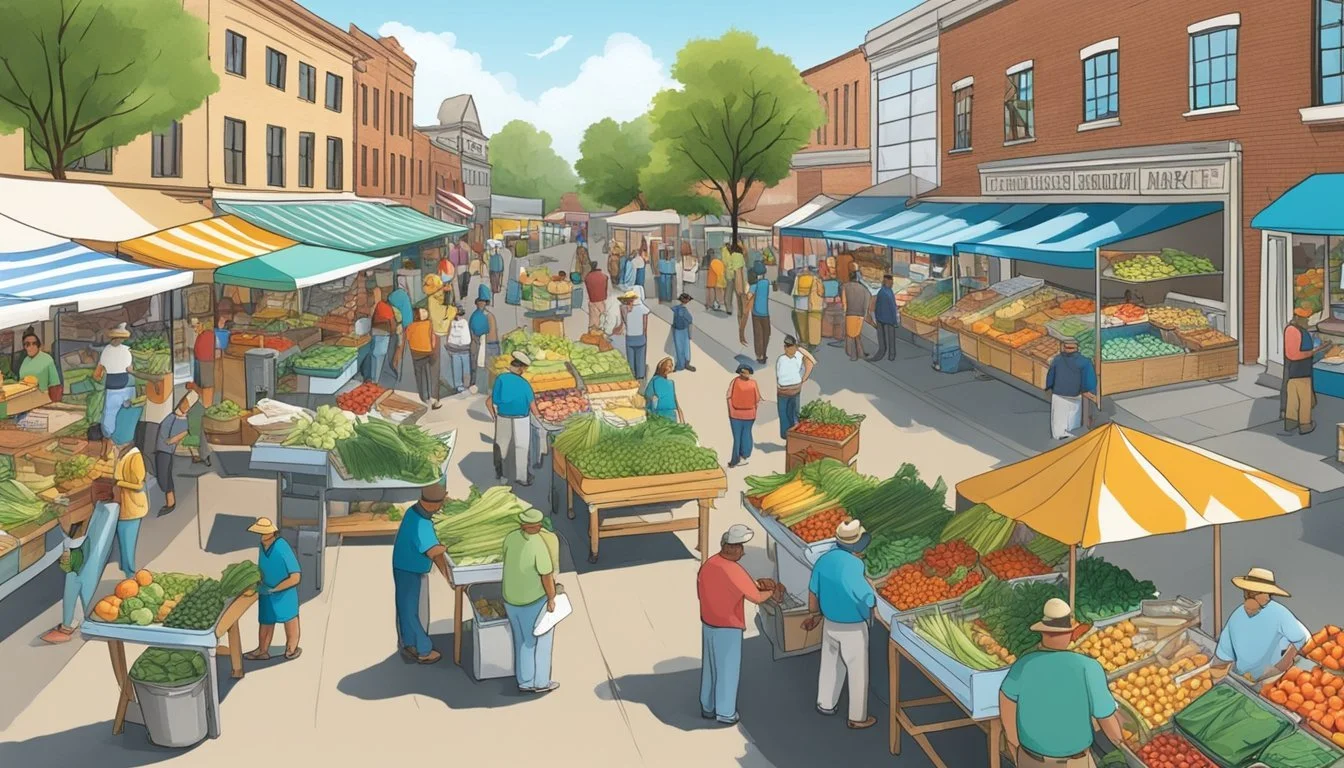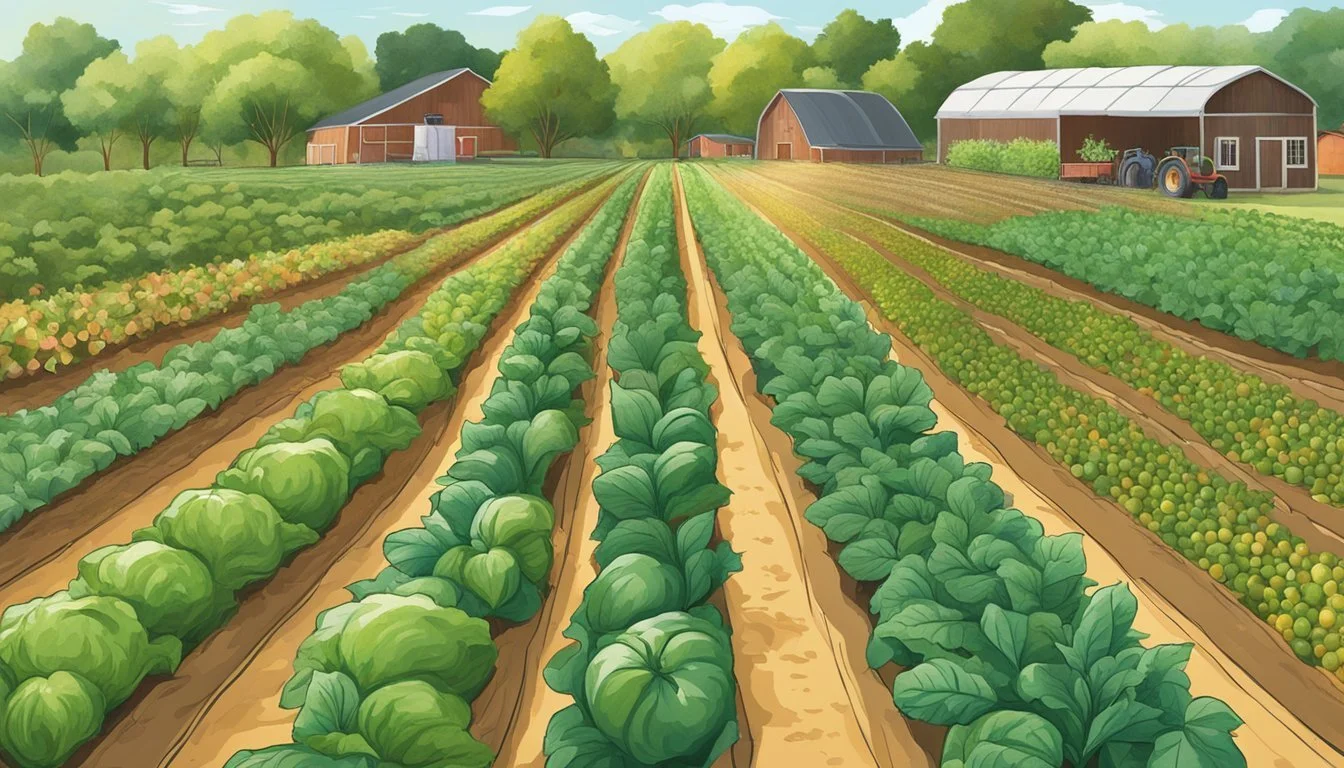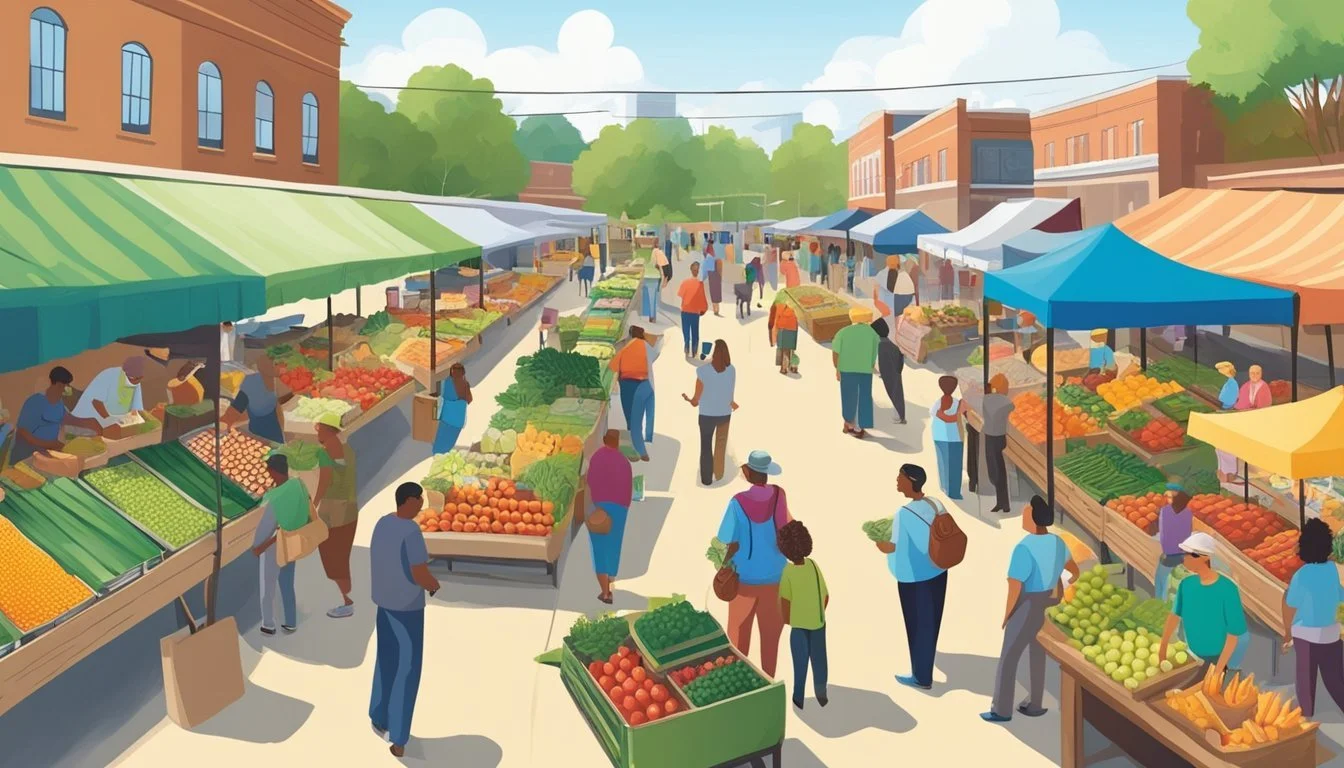Community Supported Agriculture (CSA) in Shreveport, LA
A Guide to Local Farm Partnerships
Community Supported Agriculture (CSA) is a model used by several farms in and around Shreveport, Louisiana, to provide local residents with fresh, locally-sourced produce. In this system, consumers purchase shares of a farm's harvest in advance, thus sharing the risks and rewards of farming with the growers. This model not only helps in stabilizing the farm's income but also connects consumers directly with their food source, offering them seasonal produce throughout the farming season.
Shreveport has observed a growing interest in CSA programs, which is reflective of a nationwide movement towards sustainable agriculture and a desire to support local economies. The CSA model here allows members to receive weekly or bi-weekly boxes of fresh produce, often with the option to visit the farms and participate in the harvesting process. Local farms like Earth Share Gardens have played a significant role in this movement, providing both economic support to farmers and educational opportunities to the community on the importance of sustainable farming practices.
This support for local agriculture in Shreveport has further led to the emergence of various farm stands, farmers markets, and pick-your-own produce opportunities, underlining the community's commitment to healthy eating and support of local farmers. As the community continues to engage with local CSA programs, the bond between farmers and consumers strengthens, ensuring that residents have access to fresh produce while supporting local agriculture.
Understanding CSA
Community Supported Agriculture offers a unique way for consumers to buy local food directly from farmers, encouraging sustainable practices and a close-knit community relationship.
Definition and Principles
Community Supported Agriculture (CSA) is a program where consumers purchase shares from local farms, and in return, receive a portion of the farm's produce throughout the harvesting season. This direct marketing model emphasizes several key principles:
Support of Local Agriculture: By participating in a CSA, members provide upfront support to local farmers, ensuring the financial stability and sustainability of small farms.
Shared Risk and Reward: Both the farmers and consumers share the risks of farming, such as poor harvests due to adverse weather conditions, as well as the bounty of good yields.
Community Engagement: CSAs foster a community around local food, where consumers are closely connected to the source of their produce and are educated on the farming process.
History of CSA
The CSA movement began in the 1960s in Germany, Switzerland, and Japan due to concerns about food safety and the urbanization of agricultural land. CSA as known in the United States originated in the 1980s inspired by European biodynamic farming methods. Robyn Van En and Jan Vander Tuin brought the CSA model to Massachusetts, establishing one of the first CSAs in the U.S.
CSA Model
The CSA model operates on the cornerstone of a mutually beneficial relationship between farmers and consumers:
Basic Structure: Consumers pay for their shares before the growing season, and in return, they receive a regular supply of fresh, local produce.
Variety and Flexibility: Share offerings can vary significantly from one CSA to another. Although traditional shares typically include vegetables and fruits, many CSAs now offer a range of products including cheese, eggs, meat, and bread.
By understanding the essentials of Community Supported Agriculture, consumers appreciate their role in sustaining local farms and contributing to a resilient food system.
CSA Benefits
Community Supported Agriculture (CSA) in Shreveport, LA, provides significant advantages spanning health, economic, and environmental sectors. This section will underline the multifaceted benefits that CSAs offer to consumers, farmers, and the environment.
For Consumers
Health and Nutrition: Consumers benefit from CSAs by having direct access to fresh, seasonal produce that is often organically farmed. They receive nutrient-dense food that supports their health and nutrition needs.
Sense of Community: Joining a CSA fosters a strong sense of community as members often engage with farmers and fellow members, reaffirming their connection to local agriculture.
For Farmers
Sales and Financial Predictability: Farmers benefit from a stable sales channel. By selling "shares" of their produce, they gain financial predictability which allows for better planning and sustainability of their local agriculture operations.
Sustainable Agriculture and Research Education (SARE): CSA supports farmers who practice ecological farming, aligning with SARE's mission to advance innovations in sustainable agriculture.
Environmental Impact
Organic and Ecological Farming Practices: CSA farms in Shreveport often embrace organic and ecological farming techniques that are gentler on the earth, contributing to soil health and biodiversity.
Reduction in Greenhouse Gas Emissions: By purchasing locally, CSA members help reduce greenhouse gas emissions associated with long-distance food transportation, thereby supporting a healthier environment.
Participation in CSA
Community Supported Agriculture in Shreveport, LA, connects local farmers with residents through a system where members share in both the bounty and risks of agricultural production.
Becoming a Member
Individuals in Shreveport become CSA members by purchasing shares from local farms before the growing season. Shares represent a portion of the farm's production and guarantee the member a supply of seasonal farm products. Operationally, members often pay upfront, which provides the farms with necessary capital for initial labor and supply costs.
CSA Management and Operations
CSA operations in Shreveport necessitate collaborative efforts between farmers and consumers. Farmers focus on food safety standards and sustainable agricultural practices while managing the variable elements such as weather and crop production. Labor requirements vary, often depending on the size of the CSA and the range of operations involved in planting, maintaining, and harvesting crops. Distribution is a critical part of CSA operations, with some farms offering pick-up locations, while others may provide delivery services to members.
Supporting Local CSA Programs
Local Shreveport CSA programs benefit from community engagement and support. Encouraging participation through farmer's markets, local events, and word-of-mouth helps sustain and grow these agriculture initiatives. Support can come in various forms beyond membership, including volunteering at the farm, participating in farm events, or contributing to local food policy discussions.
CSA Produce and Products
Community Supported Agriculture (CSA) in Shreveport, Louisiana, offers a direct way for consumers to acquire fresh produce while supporting local farms. Customers secure their share of the harvest by purchasing a membership, which grants them regular distribution of the farm's bounty throughout the growing season.
Common CSA Offerings
Vegetables and fruits form the core of what CSAs typically offer. These may include a variety of leafy greens, root vegetables, and seasonal fruits such as berries and orchard fruits. Members might also find products like eggs, honey, and sometimes milk included in their CSA shares. The offerings can vary based on what the farm grows and what is in season.
Vegetables: Tomatoes, cucumbers, carrots, etc.
Fruits: Apples, peaches, strawberries, etc.
Additional Products: Eggs, honey, and dairy.
Seasonal Availability
The harvest and availability of produce are dependent on the growing season. In Shreveport, CSA members can expect a rotation of produce that corresponds with the Louisiana climate and growing conditions. This ensures that members receive the freshest seasonal produce at its peak flavor and nutritional value.
Spring: Leafy greens, strawberries, peas.
Summer: Tomatoes, peppers, melons.
Fall: Squash, apples, root vegetables.
Organic and Pesticide-Free Options
Many CSAs in Shreveport emphasize organic farming practices and offer produce that is grown without synthetic pesticides. Organic options cater to consumers who prefer foods that are cultivated using sustainable and environmentally friendly methods. CSA members are often given choices between conventional and pesticide-free shares.
Organic Practices: Comply with USDA organic regulations.
Pesticide-Free: Grown without synthetic pesticides, may not be certified organic.
Community and CSA
Community Supported Agriculture in Shreveport, LA nurtures a sense of community and provides educational opportunities. It creates a unique bond between local farmers and residents through shared agricultural experiences and events.
Building Community through CSA
The core of CSA in Shreveport revolves around building a tight-knit community. Local residents purchase "shares" from farmers' harvests, establishing a financial backbone for the farms and ensuring food safety through transparency. These exchanges foster a solid partnership, where both farmers and consumers share the risks and rewards of farming.
Services: CSAs often offer delivery or pick-up options to increase convenience for community members.
Local Farmers: They gain predictable support and can focus on sustainable practices.
Farmers Markets: These local hubs serve as collection points for CSA shares and provide avenues for further community connection.
Sense of Community: Subscribers to CSA programs are not just buying food; they are investing in local agriculture and its future.
Education and Events
CSAs in Shreveport go beyond providing fresh produce; they serve as platforms for community education and cultural events. Educational programs offered by CSAs help community members understand the importance of sustainable farming practices and healthy eating habits.
Events: Cooking classes, farm tours, and harvest festivals are regular occurrences that bring the community together.
Community Education: Workshops on nutrition, organic farming, and seasonal recipes empower consumers with knowledge about what they eat.
Fundamentally, CSAs are about more than just food. They're about forging communal bonds and nurturing an environment where everyone has a stake in both the journey and the bounty that comes from the earth.
CSA Challenges and Considerations
Community Supported Agriculture programs in Shreveport, LA, confront both economic obstacles and the intricate balance of supply and demand. These challenges require careful management and innovation to ensure the sustainability and success of local CSAs.
Economic Challenges
Farmers Markets and CSAs often operate on thin margins. Direct-to-consumer models like CSA face significant financial pressures that stem from multiple frontiers:
Startup Costs: High initial investment for land, equipment, and infrastructure can burden new CSAs.
Cash Flow: CSAs require upfront payments, but managing these funds against the backdrop of operational expenses poses challenges.
Pricing: Competing with conventional produce prices, CSAs need to establish a balance that sustains the farmer while remaining attractive to consumers.
Navigating Supply and Demand
Managing expectations between producers and consumers involves an intricate understanding of supply and demand dynamics:
Overproduction: CSAs must gauge customer demand accurately to avoid surplus that can lead to waste or financial loss.
Factors Influencing Overproduction Weather anomalies Misjudgment of customer preferences Sudden changes in market trends
Underproduction: Conversely, CSAs risk customer dissatisfaction and retention if they consistently underdeliver on quantity or variety.
Potential Consequences of Underproduction Decrease in customer renewal rates Negative impact on brand reputation Loss of revenue and market share
Future of CSA in Shreveport
In Shreveport, Louisiana, Community Supported Agriculture (CSA) is poised for meaningful growth, influenced by local consumer trends and expansions in agricultural innovation. This growth reflects Shreveport's increasing prioritization of sustainable, locally sourced food systems.
Local Trends in CSA
Recent years have seen a marked increase in consumer participation in Shreveport’s CSA programs. These programs, often listed in directories such as LocalHarvest, are indicative of a shift towards a more community-focused approach to agriculture. The region's CSA sales reveal a community eager to support local farmers, with the trend showing that residents value the transparency and quality that come from buying fresh produce directly from its source.
Local agriculture, including both traditional and greenhouse production, has been adept at meeting the rising demand. Shreveport's CSAs have contributed to the diversification of local agriculture offerings, expanding beyond staple crops to include heirloom varieties and organic options. This uptick aligns with a broader, more invested interest in the origins and methods of food production.
Innovation and Expansion
Technology adoption within the CSA model in Shreveport is driving more efficient production and distribution methods. Greenhouses equipped with state-of-the-art technology are enabling year-round production, lessening seasonal limitations and bolstering the capability of CSAs to fulfill consistent consumer demand.
Efforts in distribution are being optimized as well. CSAs are leveraging online platforms for sales and communication, enhancing their reach and making it easier for the consumers to access their services. This increased connectivity between producers and consumers strengthens the local food system, ensuring its resilience and sustained growth.
The CSA model in Shreveport reflects an innovative fusion of tradition and contemporary approaches to agricultural practices and consumer engagement. As these programs continue to evolve, so too will their impact on the local community, solidifying CSAs as a cornerstone of Shreveport's sustainable food landscape.
Resources and Further Reading
In this section, readers will find a curated list of directories and educational resources that are essential for anyone interested in Community Supported Agriculture (CSA) within the Shreveport, LA area. Each resource has been selected to provide comprehensive knowledge and guidance.
Local CSA Directories
Shreveport CSA Providers:
LocalHarvest: A premier source for finding CSA options, where one can search for local farms in the Shreveport area.
Website: LocalHarvest.org
Educational Materials
CSA-Related Literature:
SARE (Sustainable Agriculture Research & Education): Provides insight into sustainable farming practices which are often integral to CSA programs.
Learning Resources: SARE's Learning Center
Letters and Publications: A selection of Local CSA newsletters and brochures that often contain a wealth of information on specific CSA programs, seasonal produce, and member testimonials.
To receive these materials, interested individuals should reach out directly to CSA farms in the Shreveport area for subscriptions or available publications.
National CSA Resources:
National Agricultural Library: For broader study beyond local scope, this library contains historical data and research papers on CSA.
Access Data: National Agricultural Library CSA

